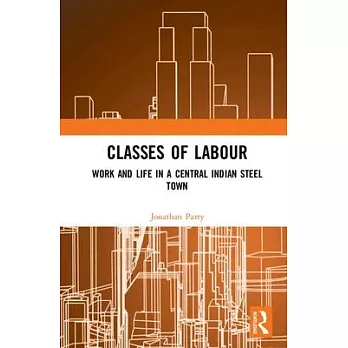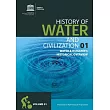The book deals with social transformations brought about by industrialization in and around the steel town of Bhilai in the central Indian state of Chhattisgarh. The focus is, firstly, on differences in the working lives of regular workers in public and private sector factories, and between both of these and the insecure contract labour force that is also employed by this sector and the informal sector labour that is condemned to work outside it. It is, secondly, on the way in which these divisions are associated with differences in social life outside the world of work - in kinship and marriage practices; in the texture of neighbourhood relationships; in life styles, life chances and consumption patterns, and in the salience of identities based on caste and on class.
The hierarchy of labour is based on around 34 months anthropological field research in Bhilai, conducted over the past eighteen years. The public sector Bhilai Steel Plant (BSP) and its company township were constructed with Soviet aid some fifty years back on a 'green field' site in what was then a remote rural region. It is now one of the largest in Asia and has provided a magnet for hundreds of smaller-scale private sector factories and for a huge influx of workers from all corners of India. Much of the fieldwork was on shop floors in the steel plant and in private sector factories, and at the work sites of informal sector labourers; but more of it was done in the neighbourhoods in which these different types of workers live. The objective has been to document the ways in which these different 'fractions' of the 'working class(es)' make sense of, and represent, the industrial revolution through which they have lived, and to discover what has changed in their worlds in terms, for example, of attitudes to labour, kinship and marriage patterns, caste and other forms of inequality. What emerges most strikingly is the way in which these different 'class fractions' are differentiated not only by their material conditions, and their life-styles and life chances, but also in their outlooks and aspirations, and in their understanding of caste, class and gender relations.
Centrally, the study is intended to contribute to our understanding of these distinct dimensions of inequality, and of the relationship between them (and most especially between the first two of them). As a contribution to the analysis of caste, the aim is to show how its meaning and salience vary at different levels of the class hierarchy. As a contribution to the study of class, the aim is to offer a picture of the class structure of urban industrial India that gives due weight to the stark divisions - and not infrequently the conflicting interests - of different segments of the manual workforce. The ambition is also to illuminate other post-colonial situations where state legislation and policies have created an enclaved aristocracy of labour; and the comparative and political implications of the analysis will be explicitly drawn out, as well as its implications for the development of a less Eurocentric theory of class.



 天天爆殺
天天爆殺  今日66折
今日66折 
























 博客來
博客來 博客來
博客來 博客來
博客來 博客來
博客來 博客來
博客來